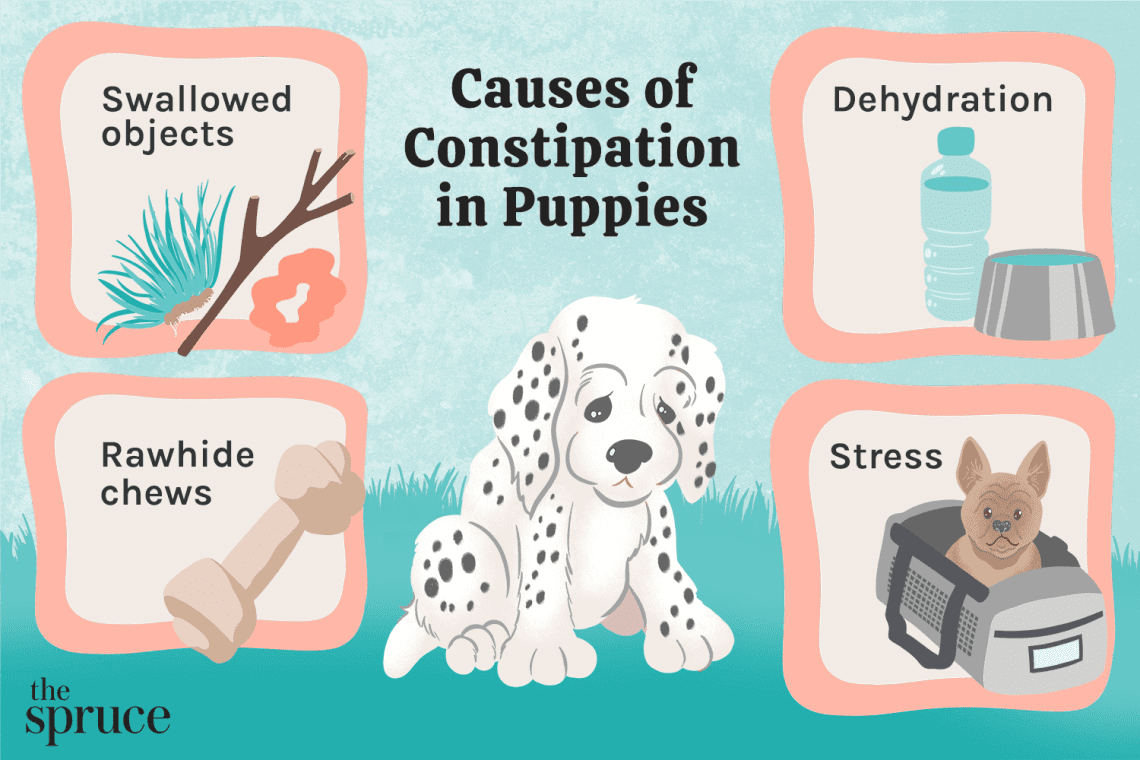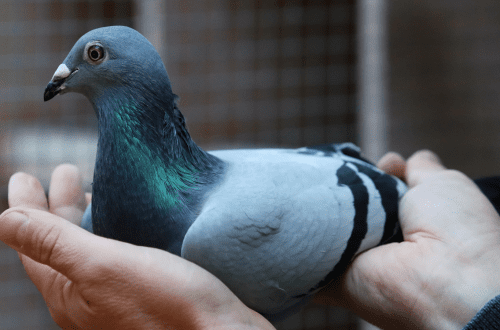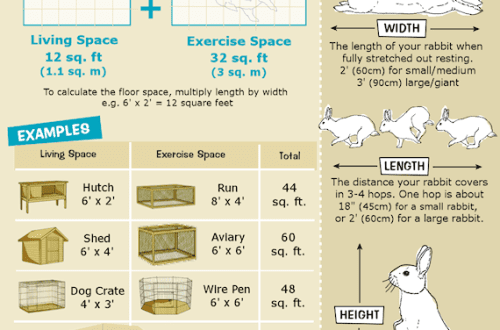
What to do if a dog has constipation: symptoms, causes and consequences, treatment and prevention of constipation
Creatures more devoted to man than dogs cannot even be imagined. They love us, their owners, selflessly, and in return we surround our pets with affection and care. The main thing is that the pet is always healthy and, in many respects, it depends on the owner of the dog whether she will have health problems or not.
Contents
Symptoms of constipation in dogs
The main symptom of constipation is complete or partial retention of stool. A partial delay is manifested in the fact that the pet poops less often (the norm in adult animals is 1-3 times a day, in puppies it can be up to 5 times) and does it with great difficulty, the feces come out in dry and hard small pellets.
Constipation is also manifested by other symptoms:
- the abdomen becomes hard and painful due to the accumulation of gases;
- the dog loses its appetite or completely refuses to eat;
- the animal becomes lethargic, weak and inactive;
- in severe cases on the mucous white patches appear in the mouth and vomiting may begin – these are signs of intoxication of the body.
Causes of Constipation in Dogs
The following reasons can be distinguished:
- improper diet;
- inadequate water intake;
- overfeeding;
- lack of mobility;
- foreign object in the intestine;
- medical problems.
Improper diet
Improper nutrition is the most common cause of rectal obstruction in dogs. They are strictly forbidden to eat muffins, sweets, smoked meats and fatty meat.
Often there is constipation in those dogs that regularly gnaw on bones. The fact is that the remnants of bones accumulate in the intestines and this can cause not only constipation, but also intestinal obstruction. Especially the hollow bones of a bird are dangerous, sharp pieces of which can cause perforation of internal organs.
Insufficient water intake
The basis of drinking a dog is ordinary water. If she consumes little water, then the likelihood of constipation increases significantly, especially when eating mainly dry food.
Overfeeding
Overeating can lead to obesity in dogs, which in turn can lead to many health problems, including constipation.
Sedentary lifestyle
Lack of physical activity in a dog is one of the main reasons for a decrease in muscle tone, including intestinal smooth muscles, which contributes to constipation. Especially moderate physical activity is important for older pets, in which, due to age, the intestinal tone is already reduced.
Foreign object in the intestine
Often in the digestive tract of a dog there may be foreign objects that can neither be digested nor come out naturally. These can be bones, small toys, pieces of cellophane, or other items. In these cases, the animal, in addition to constipation, may experience severe pain in the abdomen. If such symptoms are observed, then the animal should be immediately shown to the veterinarian.
Medical problems
Quite often, the cause of constipation is various diseases, such as:
- diseases of the alimentary canal;
- metabolic disease;
- tumors in the intestines;
- diseases of the genitourinary system;
- neurological diseases;
- diabetes.
Effects of constipation in dogs
Some dog owners treat constipation in their pets lightly – they say, there is nothing wrong with that. Indeed, in most cases there is nothing tragic in this situation. But constipation, especially prolonged, can have very serious consequences, such as:
- intoxication of the body;
- intestinal rupture;
- critical damage to internal organs.
Treatment for constipation in dogs
So, according to all the symptoms and signs, constipation was detected in the dog. What should the owner do in this case?
In any case, it is necessary to find out the cause and, first of all, treat it, and it is difficult to do this without qualified help from a veterinarian.
severe cases of constipation
If the dog shows signs of constipation with a complete cessation of defecation and pronounced changes in behavior, then it is necessary contact a veterinarian immediatelyin order to find the cause of constipation in a timely manner and prescribe treatment.
In some particularly serious cases, only surgical treatment can help. Without this measure, you can not do with such problems:
- intestinal obstruction;
- twisting of the intestines;
- the formation of a tumor or cyst;
- the presence of a foreign object in the digestive tract.
In order for surgical treatment to give a positive result, all doctor’s recommendations must be followed for the rehabilitation of the animal in the postoperative period.
If the cause of constipation is some systemic internal disease that does not require surgical intervention, then the help of a veterinarian cannot be dispensed with. And in this case, only one thing can be advised – to accurately follow all the doctor’s instructions.
mild cases of constipation
Not always (and, thank God!) constipation requires serious therapeutic or surgical treatment.
If the manifestations of constipation do not cause much discomfort for the dog, then you can try the following methods of treatment:
- diet change;
- folk remedies;
- enemas;
- medications;
- increased physical activity.
Change in diet
It is necessary to immediately exclude sweet, baking, fatty meat, smoked meats, eggs, rich broths, hard cheese and bones from the diet. From meat, a dog can only eat beef, veal and chicken.
If the dog is accustomed to the bones, then it is better to give her bones from the veins, as they can be completely gnawed.
Food should be given only in small portions, warm and softened. Very useful for constipation boiled buckwheat porridge and stewed vegetables (carrots, zucchini, cabbage). From dairy – low-fat kefir or natural yogurt. If the dog is accustomed to eating food, then it is best switch to special diet varieties stern.
And we must not forget that the dog should always have water in the bowl, especially if dry food makes up the majority of its diet.
Folk remedies
Proven folk remedies in the treatment of constipation:
- weak decoction of buckthorn;
- infusion on pumpkin seeds – pour a teaspoon of seeds with half a glass of boiling water, let it brew for 30 minutes;
- linseed oil – give large dogs a tablespoon twice a day, small dogs a teaspoon also twice a day;
- warm vaseline oil – give twice a day in the following portions: for miniature dogs – a teaspoon, for medium dogs – a tablespoon, for large dogs – two tablespoons. The best way is from a syringe on the dog’s cheek.
Enemas
One of the best remedies for constipation is a warm vaseline oil enema. The oil is injected into the rectum very slowly, without effort. For dogs of very large breeds – 200 ml of oil is enough, 100 ml – for dogs weighing from 20 to 40 kg, for small dogs – 50 ml, for miniature breeds – a tablespoon.
If the oil does not flow, then this procedure must be stopped immediately, as this may be intestinal obstruction.
Medications
“Human” laxatives help well:
- “Lactusan” – syrup or tablets;
- “Duphalac” – syrup;
- “Bisakodil”;
- “Purgen”;
- magnesium and sodium sulfates;
- Castor oil.
To relieve pain, you can use “No-shpu” and “Baralgin”.
Physical activity
This is the most affordable way to prevent many ailments in a dog, including constipation. You just need to walk the dog more and more often – at least three times a day, for at least 30 minutes, and weekends can be longer.
Treating constipation in puppies
Symptoms of constipation in puppies are the same as in adult dogs. When a puppy shows these symptoms, of course, it is better to see a doctor, especially if the dog has a pronounced change in behavior.
In mild cases of constipation, you can do without the help of specialists. In principle, recommendations for the treatment and prevention of constipation in puppies and adult dogs are the same.
But there are some nuances.
Food
The recommendations are the same as for adult dogs, only the taboo on prohibited foods should be even stricter – after all, the foundation of health is laid in puppyhood.
Enemas
This procedure must be approached with extreme caution, and it is best if an experienced specialist will put the enema on the puppies.
Physical activity
An active lifestyle is especially important for puppies. So that play and walk more with your small pet – the puppy needs to walk at least 4-5 times a day.
Immunizations
Constipation in a puppy can be the result of various internal diseases.
If you follow all of the above recommendations, then your four-legged friend will feel comfortable and delight in his behavior.





